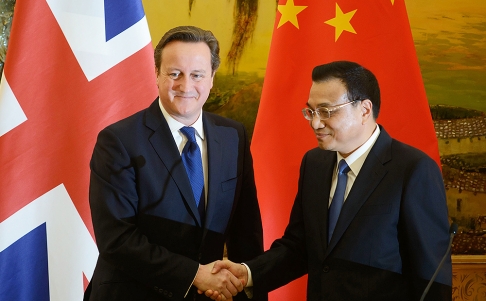It is now accepted knowledge that international relations are being radically altered by the effects of globalization and the myriad new technologies, organizations, and economic networks which effortlessly transcend the fixed borders of modern states. What is less familiar is the role that provincial, regional, and even municipal bodies are playing in reshaping the global sphere. Burgeoning ethnic and religious divisions are testing the limits of federalist governments and the ascendency of regional economies are speedily displacing the nation state in new and unexpected ways.
Regional Giants
In China, the inland municipality of Chongqing boasts a population that is nearly as large as the whole of Canada, some 30 million people. A boom in Chongqing’s urbanization and modernization programs saw the mega-city’s overall GDP balloon to more than $184 billion in 2012. But despite Chongqing’s staggering economic significance and close ties to the global economy, the United States does not have a consulate in the mega-city. In fact, diplomatic presence across China is alarmingly barren; the US maintains just four consulates apart from an embassy in Beijing itself, and Canada has just five consulates. In the global economy consular missions play a determinative role in assisting its citizens and businesses, as well as establishing relationships with local leadership. With few to no diplomatic offices in many of the developing world’s rapidly expanding mega-cities, Canada risks isolating itself from the diplomatic and economic potential of regional players.
The rising importance of regional entities is not unique to China, either. To the far southwest of Chongqing lies the Indian state of Gujarat, home to 60 million people. As the subcontinent’s leading manufacturing and exporting center, Gujarat’s exports totaled more than $61 billion in 2011. Moreover, Gujarat’s business-friendly climate has successfully attracted significant foreign investment, much of it from Canadian sources. Yet Canadians who live and work in Gujarat must travel more than 600 kilometres to access the nearest consulate, in Mumbai. Canada operates just five diplomatic offices for all of India, by comparison, France, a country with a population only slightly larger than that of Gujarat state is home to four Canadian consulates, and an official embassy. Sparse distribution of our diplomatic representatives throughout much of the developing world is emblematic of squandered opportunities to engage on the ground and establish relationships with small, but potent and increasingly independent regional bodies.
The economic and bureaucratic clout of provincial giants is reshaping the nation-to-nation system of international relations. Free trade deals and international agreements are no longer negotiated only at the federal level but also with provincial, regional and even municipal jurisdictions whose individual economic significance necessitates their input and consideration. Nowhere was this development more evident than in the recent Canada-EU free trade agreement (CETA) which saw, for the first time, Canadian provinces sitting at the negotiating table. CETA’s bottom-up framework of participation recognized the decentralized federal stature of Canada and sought the provinces’ approval on issues of relevance to them. This accommodating and comprehensive model of deliberations will undoubtedly take on a central role in future negotiations, including in any forthcoming attempt to forge a similar, and much larger free trade agreement between the US and EU.
Local, yet Global
The rapidly developing global marketplace, circuitously accessible through an abundance of new technologies, is removing barriers formally faced by sub-national bodies that export and interact with the global economy. Waning reliance on the central state and its formal institutions is symptomatic of more assertive, self-reliant regional players who are able circumvent the unnecessary federalist apparatus and engage directly with the global economy. The era of narrow, state-centric relations is over. Canada can react to the changing landscape of the global arena by continuing to involve our provinces and territories in seeking out new, cosmopolitan trading partners. But to remain competitive and embrace the economic opportunities presented by growing economic regionalization, Canada must take steps to bolster its diplomatic presence and establish development agencies in the provinces, states, and mega-cities that will be the engines of tomorrow’s growth.




